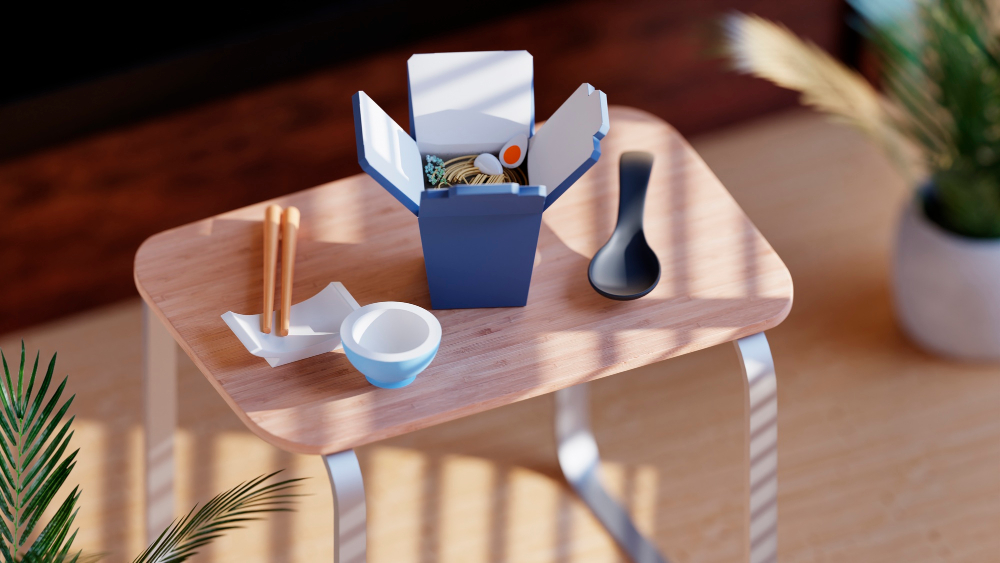How UAE’s Luxury Hotels Are Setting New Standards for Sustainable Packaging

In recent years, sustainability has become a key focus in the hospitality industry, especially among luxury hotels in the UAE. These hotels, known for their exceptional service and world-class amenities, are now leading the charge in implementing eco-friendly packaging solutions. By shifting toward sustainable packaging, they are not only enhancing their environmental responsibility but also setting new standards for the global hospitality sector.
Why Sustainable Packaging Is Essential in Luxury Hotels
Luxury hotels are increasingly becoming conscious of their environmental impact, recognizing that sustainability is not just a trend but a necessity for the future. Sustainable packaging plays a crucial role in reducing waste and minimizing the carbon footprint. It goes beyond just recycling—it includes choosing materials that are biodegradable, compostable, or recyclable, as well as reducing single-use plastics.
As part of their eco-friendly initiatives, UAE’s luxury hotels are adopting sustainable packaging solutions across various facets of their operations, from food and beverage packaging to in-room amenities. This shift is part of a larger movement within the region to establish a greener and more sustainable hospitality industry.
Top Sustainable Packaging Trends in UAE’s Luxury Hotels
1. Compostable and Biodegradable Materials
One of the most significant trends is the use of compostable and biodegradable materials instead of conventional plastic. From food containers to toiletries, UAE's luxury hotels are increasingly opting for packaging made from materials like bamboo, cornstarch, and sugarcane fibers. These materials break down naturally and have minimal environmental impact.
2. Innovative Reusable Packaging
Luxury hotels in the UAE are embracing reusable packaging solutions, offering customers a sustainable alternative to single-use plastics. For example, high-end resorts and hotels are introducing glass or metal water bottles that guests can refill, replacing plastic bottles with environmentally friendly options. This not only reduces waste but also adds a premium touch to the guest experience.
3. Eco-Friendly Toiletries and Bathroom Amenities
In-room amenities, especially toiletries, are often the biggest culprits in generating unnecessary plastic waste. To combat this, UAE luxury hotels are switching to sustainable packaging for items such as shampoos, conditioners, and lotions. Many hotels now offer bulk dispensers or refillable glass containers that reduce the need for single-use plastic bottles. Some are even offering natural, organic products in biodegradable or recyclable packaging.
4. Reducing Single-Use Plastics in Food and Beverage Services
Luxury hotels in the UAE are making significant strides in reducing plastic waste within their food and beverage services. From in-room dining to restaurants, many hotels have replaced plastic cutlery and straws with compostable alternatives made from plant-based materials. Moreover, some hotels are also utilizing edible packaging for snacks and desserts, further minimizing environmental impact.
5. Collaboration with Eco-Conscious Brands
To enhance their sustainability efforts, many UAE luxury hotels are partnering with eco-conscious brands that align with their values. These partnerships allow hotels to offer products and services that use sustainable packaging solutions. This includes everything from sustainable linens to eco-friendly coffee cups and packaging for food.
The Benefits of Sustainable Packaging for UAE’s Luxury Hotels
1. Enhanced Brand Reputation
As consumers become more environmentally aware, they are seeking brands that align with their values. Luxury hotels in the UAE that implement sustainable packaging practices gain a competitive edge by demonstrating their commitment to sustainability. This boosts their brand reputation and helps attract eco-conscious travelers who are willing to pay a premium for eco-friendly experiences.
2. Compliance with Regulations and Expectations
The UAE government has set ambitious targets to reduce carbon emissions and increase sustainability across various sectors. Luxury hotels that adopt sustainable packaging practices are not only aligning with these regulations but are also leading the way in meeting the region’s environmental goals. This proactive approach helps them stay ahead of regulatory changes and meet customer expectations for responsible business practices.
3. Long-Term Cost Savings
While transitioning to sustainable packaging may initially require investment, the long-term benefits are undeniable. By reducing waste and energy consumption, luxury hotels can lower their operational costs. Additionally, sourcing sustainable materials often leads to more cost-effective solutions, especially when switching to bulk or refillable packaging options.
UAE’s Luxury Hotels Paving the Way for the Global Hospitality Industry
UAE’s luxury hotels are setting new standards for sustainable packaging not only within the region but also on a global scale. Their commitment to environmental responsibility and sustainable practices is influencing other hotels worldwide to follow suit. As the industry continues to evolve, we can expect to see even more innovative sustainable packaging solutions in the future.
By adopting sustainable packaging practices, UAE luxury hotels are not just reducing their environmental footprint—they are also inspiring the next generation of travelers and businesses to prioritize sustainability in every aspect of their operations.
Conclusion
UAE's luxury hotels are proving that sustainability and luxury can coexist. From biodegradable materials to reusable packaging, these hotels are setting the benchmark for sustainable practices in the hospitality industry. With the growing demand for eco-friendly solutions, it's clear that sustainable packaging will play an even more prominent role in the future of luxury hotels. For travelers who value both luxury and environmental responsibility, UAE's luxury hotels offer the perfect blend of both, leading the way toward a more sustainable future.



